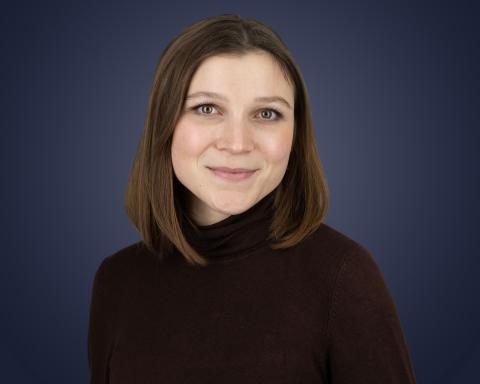Homepage
Enders Analysis provides a subscription research service covering the media, entertainment, mobile and fixed telecommunications industries in Europe, with a special focus on new technologies and media.
Our research is independent and evidence-based, covering all sides of the market: consumers, leading companies, industry trends, forecasts and public policy & regulation. A complete list of our research can be found here.

“If you want to challenge Sky, you must put a lot of money on the table,” says Francois Godard, senior media and telecoms analyst at Enders Analysis.
“For the money Amazon spent, they will have been very happy,” says Godard. “If the same thing had been available, I’m sure they would’ve been interested again, but that package was not there.
“They came into the Premier League with a retailer’s mentality, wanting people there on the platform right at the time they would shop most, and then moved towards a broadcasters’ mentality, where you need to people to come back to your service.
“For that, weekly sport is ideal. Amazon were so happy with the Champions League in Italy and Germany that they switched to the UK. I never saw this as a vote against the Premier League, but it is so expensive.”
AI and copyright: UK launches consultation on AI training exception
18 December 2024The UK government is exploring an exception to copyright law for text and data mining (TDM) for AI training, preserving opt-out for creative media.
Licensing needs a proper technical and regulatory infrastructure. Beyond AI training, how this will apply for up-to-date access, as in AI search enhancements, is still uncertain.
The EU has put in place some helpful standards but shortfalls in its practical effectiveness are a warning to the UK.
Jamie MacEwan was quoted in Digiday on "LinkedIn accelerates its pitch to B2B marketers with AI-powered ad tools"
18 December 2024“LinkedIn has put a lot of effort into encouraging more frequent and interesting posting in a more social environment in the last five years, and if enough inventory was available then this kind of automated tool could help to attract advertisers who are unfamiliar with the platform,” said Jamie MacEwan, senior analyst at Enders Analysis.
Alice Enders was quoted in Columbia Journalism Review on "Britain’s Telegraph: The Newspaper Auction from Hell"
18 December 2024“It’s been a mess for years,” said Alice Enders, director of research at Enders Analysis, a media and entertainment consultancy, noting that for all the problems, the Telegraph remains a profitable business. “But without an owner, the management cannot implement a strategy. For the staff, whose salaries and promotions are frozen, it’s an ongoing challenge.”
“The only reason he is the preferred bidder is because he offered so much more money than anyone else,” said Enders, noting that the reserve price was £500 million.
Competition heats up for some - European mobile in Q3 2024
17 December 2024Service revenue growth dropped further to -1.7% this quarter as pricing remains under pressure and in-contract price increases no longer benefit
Competition is heating up in Germany and France, and Digi is taking an aggressive stance as it enters the Portuguese and Belgian markets
While there is increasing awareness that investment levels in Europe are compromised by the current market structure, support for in-market consolidation remains lukewarm at best at the EU level
UK advertising forecasts: Online shopping drives online growth
17 December 2024From the depths of 2023, advertising expenditure on legacy media rose moderately in 2024, on the back of an uptick in real private consumer expenditure thanks to lower inflation and reduced costs of credit—the outlook for legacy media is about the same for 2025.
Online stands apart from legacy media due to the growth of ecommerce—driven by both goods (over 26% of retail sales) and services such as travel, as well as intense competition among platforms (Amazon, Shein, Temu)—with double-digit growth in 2024 set to continue in 2025.
Television remains the most effective medium for brand advertisers—despite the decline in viewing—with broadcasters’ digital innovation and SVOD ad tiers providing greater targeting alongside the mass broadcast reach.
François Godard was quoted in Reuters on "Canal+ falls, Havas and Louis Hachette up on market debut post-Vivendi split"
16 December 2024Enders Analysis analyst François Godard told Reuters that bumpy trading in Canal+ was expected until the company's narrative was fully grasped by investors.
"It (Canal+) is both incumbent and digital, profitable but not the way streamers are profitable, it is growing but not next year, it is expanding in Africa, which investors don't really understand," he said.
Hamish Low was quoted in The Telegraph on "Elon Musk is about to revolutionise life in the British countryside"
16 December 2024In a research note last week, Enders Analysis said that Britain was relatively well served by existing mobile networks, while the large number of national boundaries in Europe means that stopping satellite signals at the border is a regulatory nightmare.
For these reasons, Hamish Low, of Enders, says he does not expect a full satellite-to-device service to be available in the UK until 2026 at the earliest. And even assuming those kinks are worked out, it may not be the easy win that mobile networks are hoping for.
However, Low says that companies such as Starlink or Apple, through its Globalstar investment, could use the business to chip away at the incumbent mobile businesses. Apple has spent years developing custom modem chips for its phones – currently one of the few parts of the supply chain it does not control – which would boost reception from satellites.
